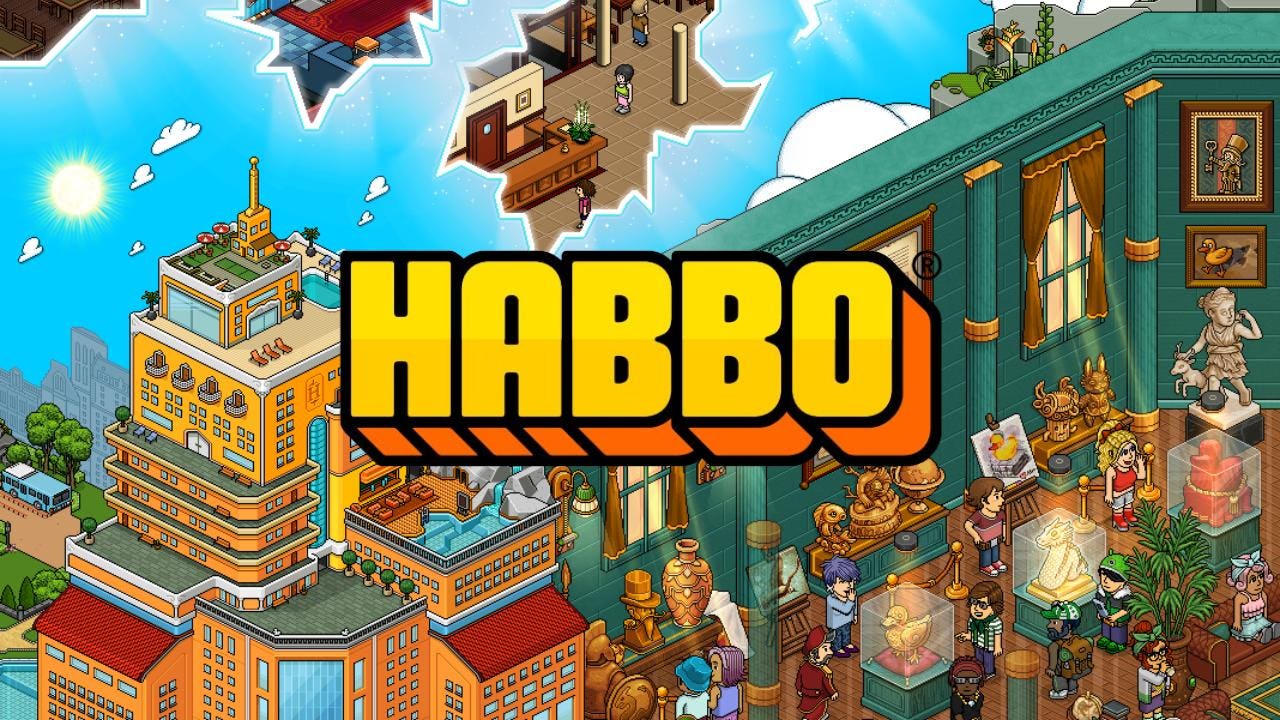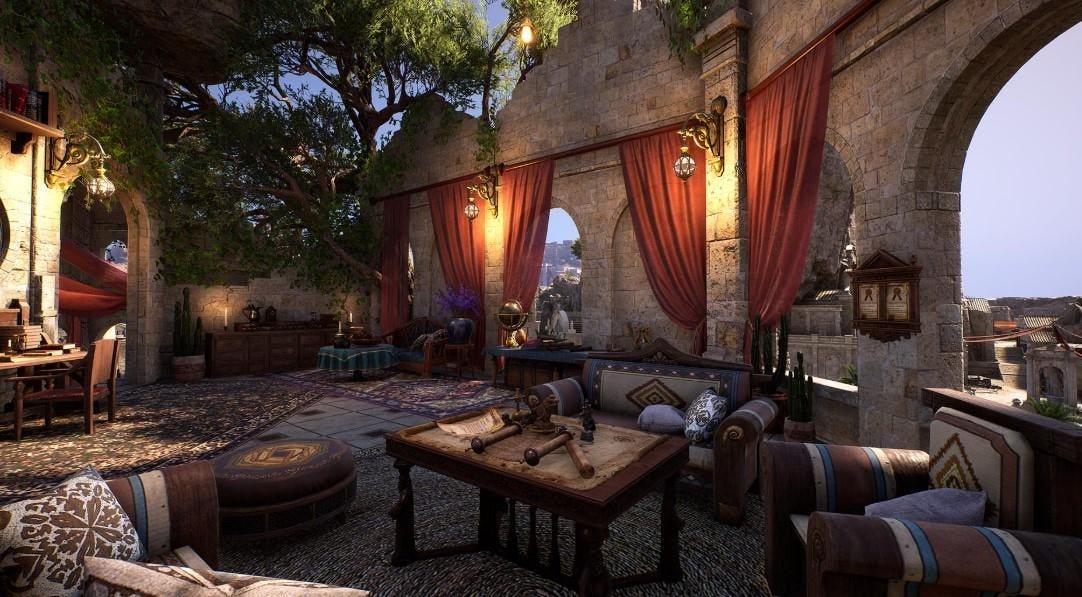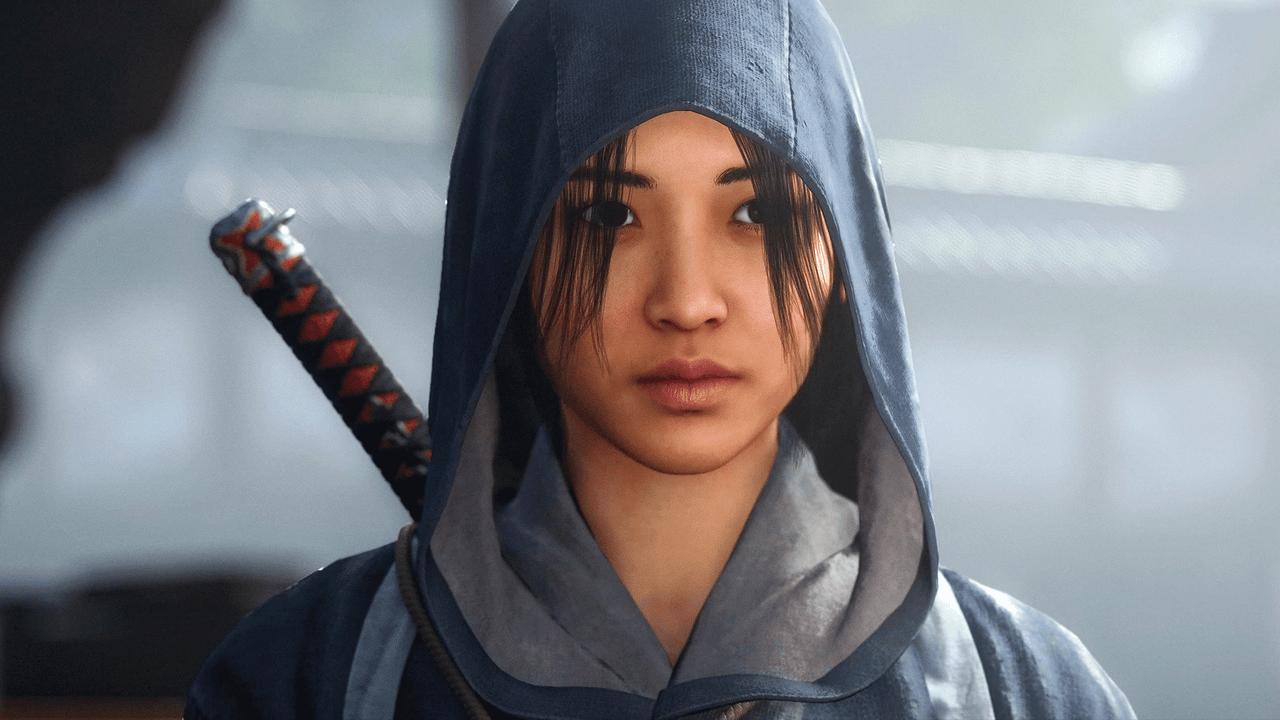You can’t really overstate just how impressive it is for a single online game to still be going strong after over two and a half decades. We live in a world where many modern live service and MMO games are canceled after years of work before ever getting a proper reveal and, in some cases, shut down before even leaving the launch window. Sulake’s Habbo isn’t one of those games, as it’s celebrating 25 years this month.
I have a lot of fond memories from playing Habbo (specifically, Habbo Hotel, back in the early and mid-2000s) back in high school. I’d log into the game from school computers during downtime or in my computer lab class, when I was supposed to be working on other projects or reviewing lessons. It was like an interactive, pixel art chatroom come to life on a computer screen. Suddenly, people were more than just screen names. Everything came to life with an iconic retro aesthetic.
Habbo: Staying Alive for Over 25 Years
You don’t get to 25 years without making some changes and evolving over time, though. Now, Habbo is split up into three separate experiences: Habbo, the main core modern experience, Habbo Collectibles, an experience focused on collecting and earning rewards, and Habbo Hotel: Origins, a revitalized version of the original.
To learn more about Habbo, what makes it tick, and what has allowed it to stay alive for so long despite the odds, I conducted an email Q&A interview with the game’s Product Director, Mika Timonen.
Play Puzzles & Games on Forbes
Habbo Hotel: Origins
Sulake
The Origins of Habbo
“Habbo is a pixel-art virtual world where you can build rooms, run events, make friends, and just be yourself—it’s been that way since 2000,” Timonen said in an email. “More than anything, it’s a community game. We’ve got fansites, builders, artists, and volunteers all over the world keeping the Hotel alive. A lot of them have been around for decades, know every bit of the game’s history, and give Habbo its own unique personality.”
First founded in 2000, Habbo has reached an extraordinary amount of people around the world with users from more than 150 countries. According to Timonen, in total, there are “hundreds of thousands of monthly active users” and “over 300 million” total registered users.
“Our tagline is, ‘A strange place with awesome people,’ and it’s true,” Timonen said. “Whether you want to host a rave, design a haunted mansion, or start a roleplay agency, you can. And if you’re new? You’ll find a community that’s all-knowing, creative, and surprisingly kind. There’s nothing else like it.”
Hitting the quarter century milestone for an online social world is pretty remarkable. The list of games that have achieved that and are still running is quite small.
“It feels incredibly humbling,” Timonen said. “Looking at the past twenty-five years, the world has changed a lot. Especially the technology and games with it. For Habbo to not only exist but to still be a vibrant home for a global community is a testament to something deeper than just a game. By this I mean that Habbo is more than a game, it is a community—one of the first ever online communities, actually. It is a place for millions of people to chat, meet friends and throughout the years for some even to make extremely close and long-lasting friendships. It’s difficult to grasp how many lives Habbo has touched, and for how many it remains the warm, happy place from their youth. And even after 25 years for many it still remains the place they come to have fun and chat with their friends.”
Habbo Hotel: 25th Anniversary
Sulake
Habbo—Lessons in Community and Innovation
“A lot of people remember Habbo as their first online world, and that nostalgia is something we deeply value,” Timonen said. “What has kept Habbo alive and growing is that we’ve always embraced change while staying true to what made it special: freedom, creativity, and social connection. We have modernized the experience to include mobile devices, we introduce fresh content weekly and keep our community at the heart of every decision.”
Leveraging the infectious power of nostalgic curiosity and balancing that against a constant need to innovate and iterate is not easy. Certainly not with an audience that shifts and moves on as quickly as fickle gamers.
“With a game as old as Habbo, change is constant,” Timonen said. “Over the years we’ve added, evolved, and occasionally removed features to keep things fresh. But most importantly, we listen to our community. When something doesn’t land well, we’re not afraid to roll it back, and some of our most successful updates have come directly from player feedback.
“New players show up for the vibe—the pixel-art’s timeless and there’s nothing else out there with the same look and personality. Long-time players come back because their rooms, friends, and items are still here waiting. It’s rare to find a virtual space that feels both familiar and fresh, but that’s exactly what makes Habbo stand out! In the 25 years we have never stopped building. This long history gives players lots of things to explore. So whether you’re logging in for the first time or the first time in years, there’s always something new to experience and someone new to meet.”
Habbo—On The Rise of Competitors and The Metaverse
When you look up Habbo on the Google Play store, you’ll see the tagline: “The Original Metaverse.” And I’m struggling to think of a reason why that isn’t true, to be honest.
“We love that App Store tagline,” Timonen said. “Because it’s true. Long before the word ‘metaverse”’ was in headlines, Habbo was already doing it: giving people digital identities, virtual spaces to create and hang out in, and economies driven by user activity. We were laying that groundwork over 20 years ago!”
Even though Habbo may have been one of the first, it’s far from the only social virtual world that people around the globe spend their time in on a monthly, weekly, and even daily basis. From Minecraft and Roblox to Fortnite and everything else out there, there are tons of options.
“When we see platforms like Roblox, Fortnite, and others rising, we don’t feel threatened, we feel proud,” Timonen said. “It’s validating to see the rest of the world embrace ideas we have believed in from the beginning. And honestly, we have learned a lot from watching them too. Innovation doesn’t stop, and we are always evolving to stay competitive and relevant. But what sets Habbo apart is its soul. There’s a raw, chaotic charm to Habbo. A real sense of community and weirdness and that’s hard to replicate. People remember their first Habbo room, the times staff were in-game handing out free furni, the whole, ‘Pools Closed’ meme and the ‘Great Mute,’ and the friends they made in the Hotel.
Habbo—On The Future of Social Virtual Worlds and MMOs
Personally, I love the generation I’ve grown up in. As a millennial, I’ve been around for the majority of the video game industry, I’ve seen the creation of the internet, I’m currently knee-deep in the advent of modern virtual reality technology, and everyone has access to whatever information they want instantaneously.
It’s equally exciting and terrifying.
“The social gaming landscape is more exciting and more fragmented than ever,” Timonen said. “There are so many platforms now where players are not just playing games but living digital lives: building, socializing, expressing themselves. In a way, the rest of the industry has caught up to what Habbo has always been about. People are living more and more online. What made Habbo special in 2000 was giving people avatars when they chat is now even more relevant. Players are craving presence and identity more than ever, and they want worlds that feel personal, persistent, and community-driven.
“What’s interesting is that while new platforms bring polish and scale, a lot of them lack the raw, player-led chaos that makes a place feel alive. That’s still Habbo’s superpower. We see ourselves more as a canvas for players to draw upon. And in an age where players want to create more than consume, that kind of open-ended, charming, community-first experience is suddenly very ‘in’ again. So, while the landscape keeps evolving, we feel more relevant than ever. And we’re excited to keep pushing it forward, on our own terms.”
What’s Next for Habbo?
I put it bluntly to Timonen: What are the plans for Habbo over the next five years, ten years, and even twenty-five years? Will Habbo still be around?
“In the next 5 years, we’re focused on deepening what makes Habbo special: creative freedom, meaningful social interaction, and community ownership.” Timonen said. “That means more powerful tools for room design and events, better mobile experiences, and new ways for players to shape the world around them. We want to find ways to make in-game content creation both more accessible and more rewarding. In the end, players who create engaging experiences for others to engage with are the lifeblood of Habbo.
“Looking ahead 10 years, we see Habbo evolving into a true social platform for the next generation—a place where you don’t just play, but build a digital identity, earn real value, and connect with people in authentic ways. We want to blur the line between game and lifestyle.
“And 25 years from now? If we’ve done our job right, Habbo will still be here, growing and as weird as ever. An engaging place for someone who logs in for the first time and as well as for someone who has been with us for 50 years. A shared world across generations. For a lot of people, Habbo’s not just a memory—it’s home. Our job is to keep that home alive, welcoming, and evolving for decades to come!”
You can check out Habbo for yourself, for free, on either desktop PC or mobile, and help them get started on the next 25 years.









